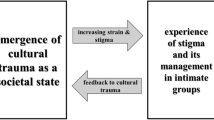Abstract
Jake was a popular sixth-grader at a local public school. He had plenty of friends and admirers, made good grades, and had adequate social skills. Jake was also a bully. Over the course of that sixth grade year Jake recruited a couple of friends, and then a much larger groups of peers, to target a classmate: Matthew. The school was quick to respond, but despite clear training, strong reprimand, and relentless surveillance the bullying of Matthew only stopped when he finally transferred to a new school. The next year Jake picked a new target: Trent. To date bullying research has largely employed empirical methodologies, including qualitative and quantitative approaches. This paper offers a fresh perspective, employing a missing philosophical lens toward the instantiation of bullying on the school campus. How might a bully – or a group of bullying participants – be narrated in such a way that he or she chooses violence or domination as a means through which to secure status? More specifically, what forces bear upon the experience of bullying, what cultures might its dominance mirror, and from where is its meaning derived? In considering these questions I employ the voices of two disparate philosophers; John Dewey and Michel Foucault.
Dewey argues that attitudes and dispositions are products of one’s environment. As we engage in the cultures within which we live we move toward like-mindedness with those around us. While this common-sensical notion of cultural environing seems self- evident, it yet does not explain how a bully shows up within a culture that overtly and aggressively rejects bullying (e.g., schooling). Here, I turn to the work of Michael Foucault which provides us with tools to consider the ways in which schooling currently pits student against student in an ever present move toward standardization and normalization. I argue in this paper that bullying and schooling reflect the same culture; a culture that provides status by rising above (dominating) those around us. In this philosophical consideration of the phenomenon of school bullying, I not only analyze the cultures which guide dominating activities, butalso suggest several re-imaginings of schooling itself; re-imaginings which may circumvent the move to bully before it begins. Ultimately this paper reminds us of the importance of attending to the normal ways we educate and the unintended consequences that form student attitudes, dispositions, and interactions.
Similar content being viewed by others
References
Biesta G.J.J. (1998) Pedagogy without humanism: Foucault and the subject of education. Interchange, 29: 1–16
Dreyfus H.L., Rabinow P. (1983) Michel Foucault: Beyond structuralism and hermeneutics. The University of Chicago Press, Chicago, IL
Espelage, D.L., Swearer, S.M. (eds) (2004) Bullying in American schools: A social-ecological perspective on prevention and intervention. Lawrence Erlbaum Associates, Mahwah, NJ
Foucault, M. (1972). The archeology of knowledge (A.M. Seridan Smith, Trans.). New York: Harper Colophon.
Foucault M. (1983) The subject and power. In: Dreyfus H., Rabinow P. (eds) Michel Foucault: Beyond structuralism and hermeneutics. University of Chicago Press, Chicago, IL, pp 208–226
Foucault M. (1983) On the genealogy of ethics: An overview of work in progress. In: Dreyfus H., Rabinow P. (eds) Michel Foucault: Beyond structuralism and hermeneutics. University of Chicago Press, Chicago, IL, pp 229–252
Foucault, M. (1985). The history of sexuality: Vol. 2: The use of pleasure (R. Hurley, Trans.). New York: Pantheon Books.
Foucault, M. (1986). The history of sexuality: Vol. 3: The care of the self (R. Hurley, Trans.). New York: Pantheon.
Foucault M. (1995) Discipline & punish: The birth of the prison. Vintage Books, New York
Foucault M. (2003) The ethics of the concern for self as a practice of freedom. In: Rabinow P., Rose N. (eds) Essential Foucault: Selections from essential works of Foucault, 1954-1984. New Press, New York, pp 25–42
Hoover J.H., Oliver R. (1996) The bullying prevention handbook: A guide for principals, teachers, and counselors. National Educational Service, Bloomington, IN
Jacobson R.B. (2007) School bullying and current educational practice: Reimagining theories of educational transformation. Teachers College Record 109(8): 1931–1956
MacNaughton G. (2005) Doing Foucault in early childhood studies: Applying poststructural ideas. Routledge, New York
Martusewicz, R.A., Reynolds, W.M. (eds) (1994) Inside/Out: Contemporary critical perspectives in education. St. Martin’s Press, New York
McLaren M.A. (2002) Feminism, Foucault, and embodied subjectivity. State University of New York Press, Albany, NY
McNay L. (1992) Foucault & feminism: Power, gender and the self. Northeastern University Press, Boston, MA
Olssen M. (1999) Michel Foucault: Materialism and education. Bergin and Garvey, Westport, CT
Olweus D. (1993) Bullying at school. Blackwell Publishing, Malden, MA
Orpinas P., Horne A.M., Staniszewski D. (2003) School bullying: Changing the problem by changing the school. School Psychology Review 32: 431–444
Patterson G.R. (1982) Coercive family process. Castalia Publishing Co, Eugene, OR
Patterson G.R. (1986) Performance models for antisocial boys. American Psychologist 41: 432–44
Patterson, G.R., Reid, J.B., Jones, R.R., & Conger. R.E. (1975). A social learning approach to family intervention Vol. 1: Families with aggressive children. Eugene, OR: Castalia Publishing Co.
Peters, M.A., Besley, T. (eds) (2007) Why Foucault? New directions in educational research. Peter Lang, New York
Popkewitz, T.S., Brennan, M. (eds) (1998) Foucault’s challenge: Discourse, knowledge, and power in education. Columbia University, New York, Teachers College
Rabinow, P. (eds) (1984) The Foucault reader. Pantheon Books, New York
Rigby K. (2002) New perspectives on bullying. Jessica Kingsley Publishers, London, UK
Roth J. (1992) Of what help is he? A review of Foucault and education. American Educational Research Journal 29(4): 683–694
Wain K. (1996) Foucault, education, the self and modernity. Journal of Philosophy of Education 30: 345–360
Walker H.M., Hops H., Fiegenbaum E. (1976) Deviant classroom behavior as a function of combinations of social and token reinforcement and cost contingency. Behavior Therapy 7: 76–88
Author information
Authors and Affiliations
Corresponding author
Rights and permissions
About this article
Cite this article
Jacobson, R.B. Narrating Characters: The Making of a School Bully. Interchange 41, 255–283 (2010). https://doi.org/10.1007/s10780-010-9126-z
Published:
Issue Date:
DOI: https://doi.org/10.1007/s10780-010-9126-z




